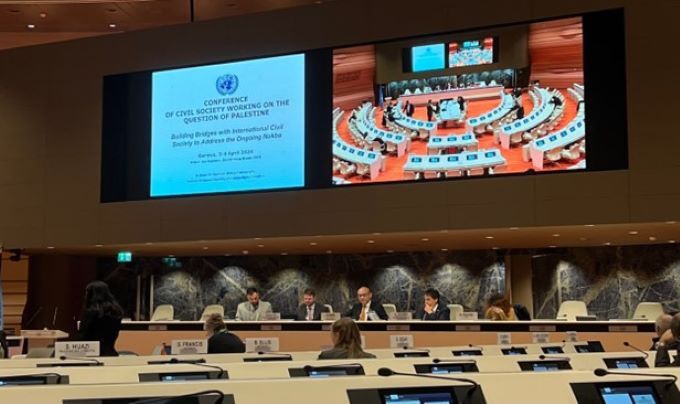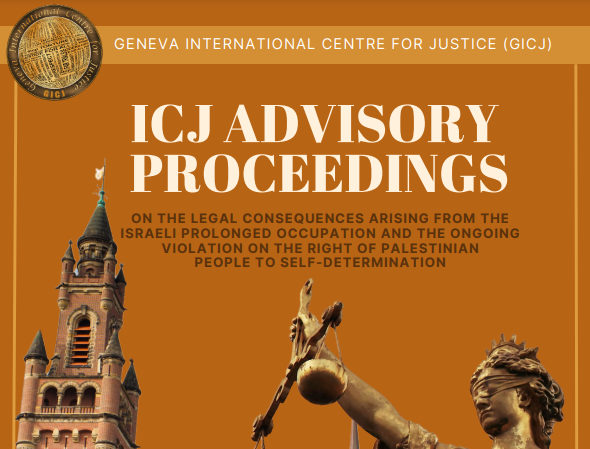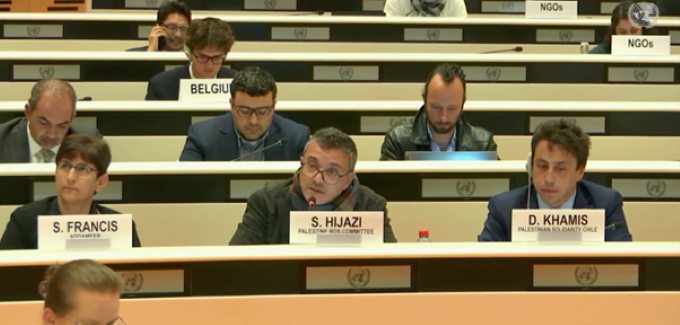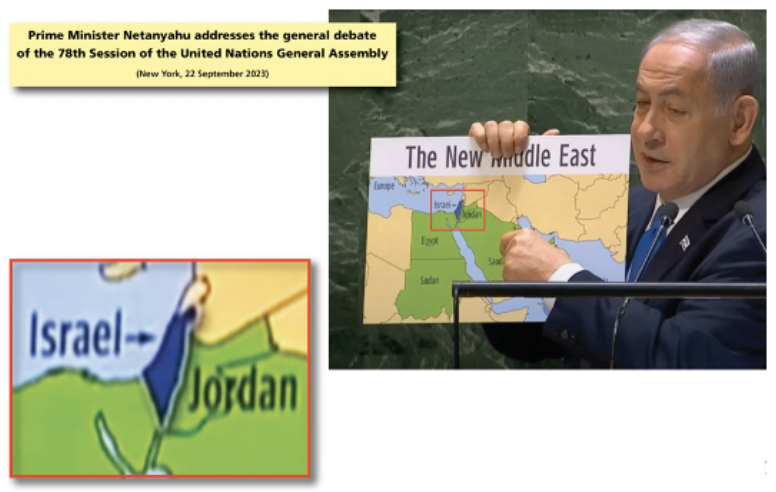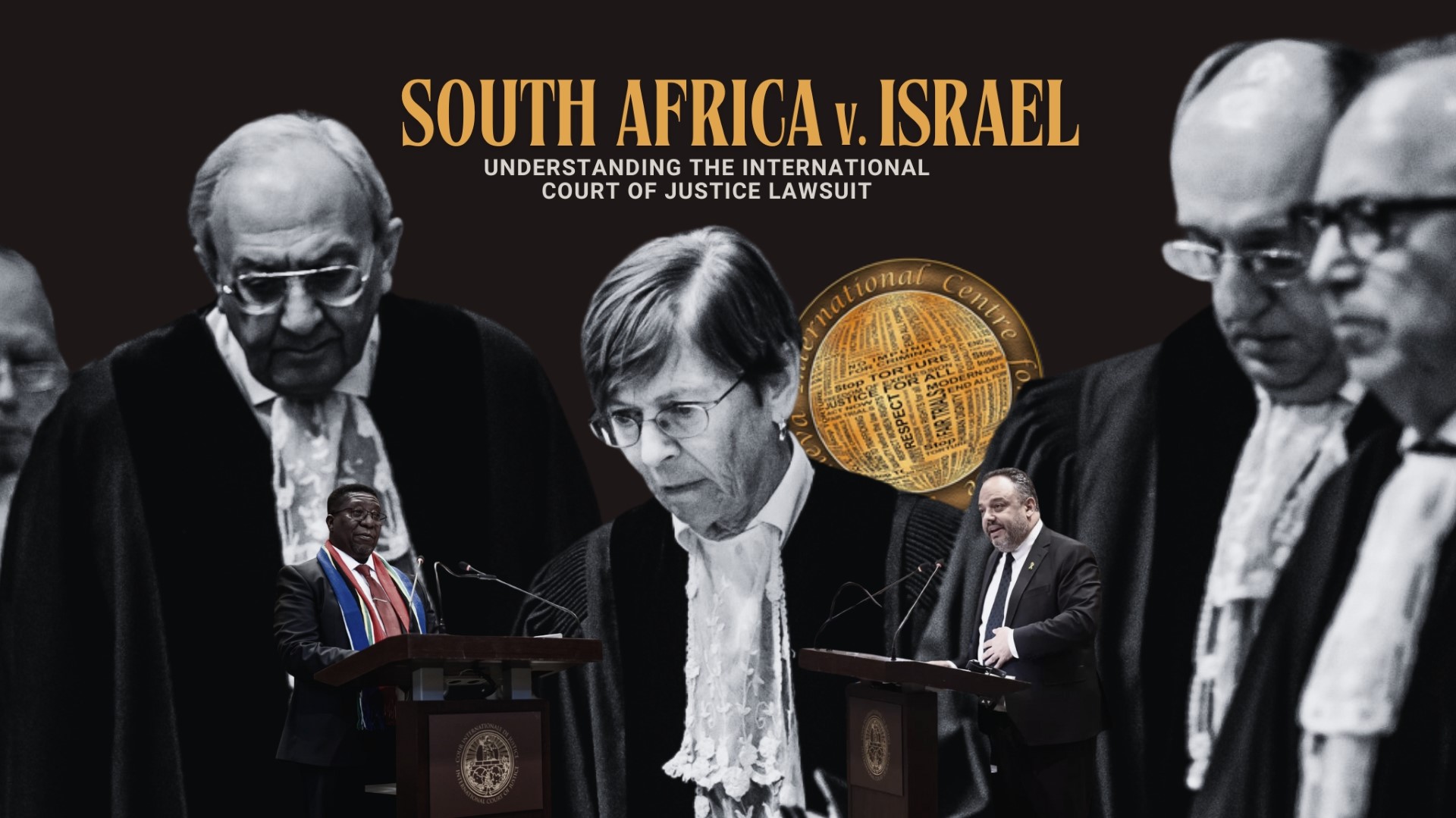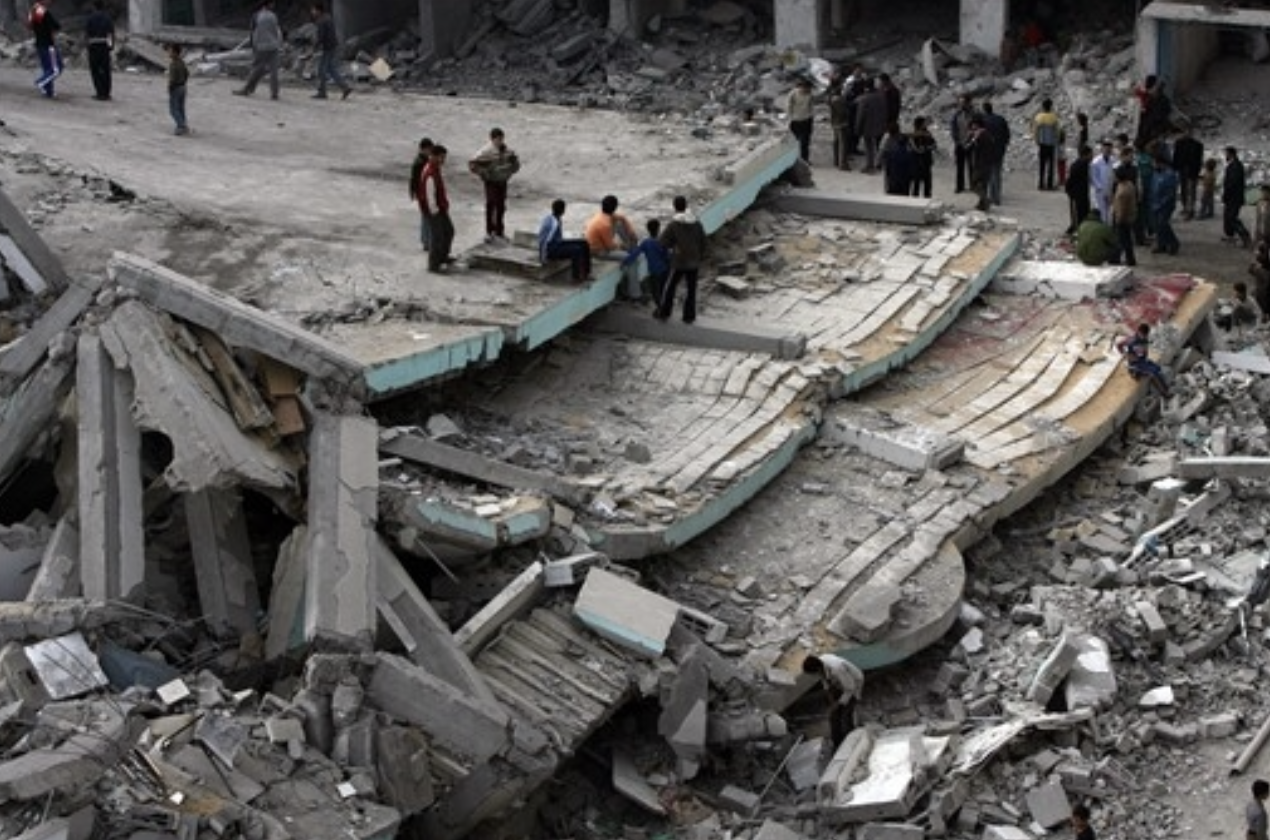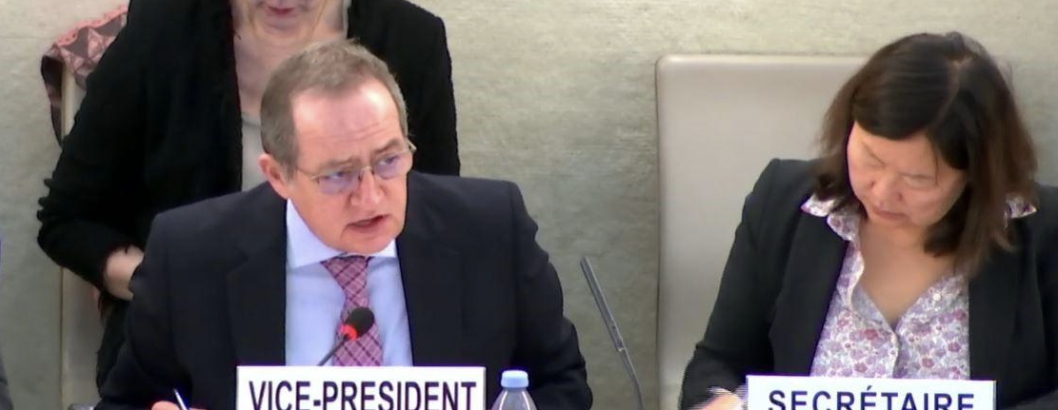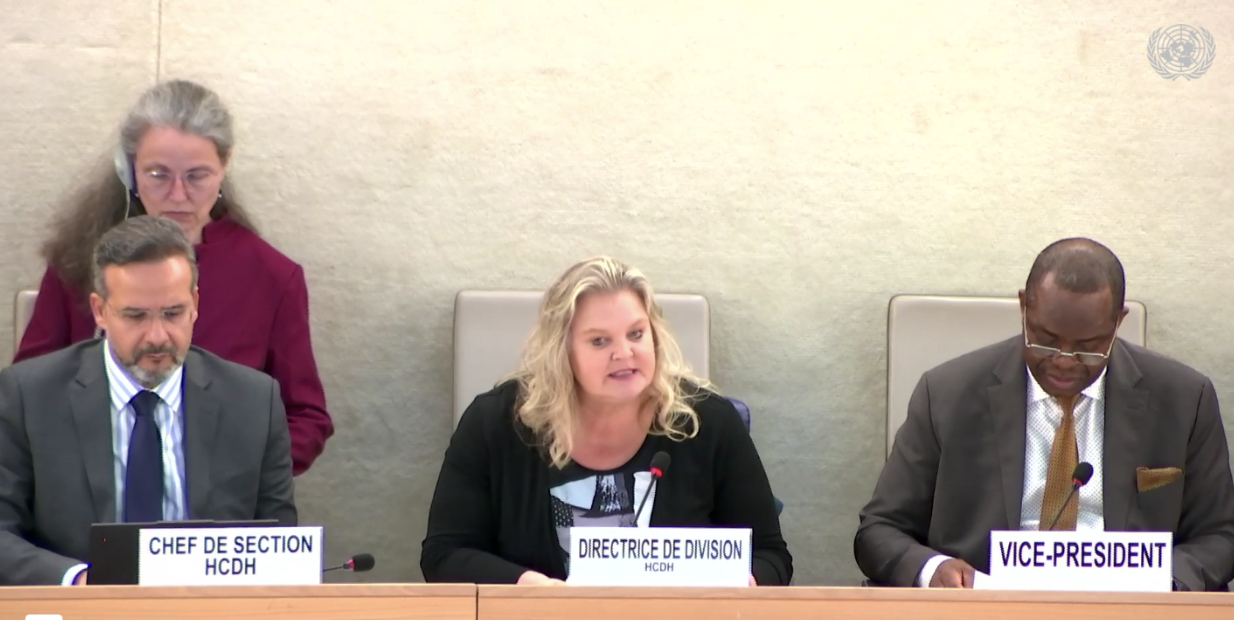ICJ hearings : Nicaragua accuses Germany’s complicity in Israel’s aggression on Gaza

Inès Najeh and Héloïse Carel /GICJ
On 1 March 2024, Nicaragua filed an application before the International Court of Justice (ICJ), UN’s top court, against Germany for alleged violations of international law and international humanitarian law, notably in failing to uphold its obligations to the Convention on the prevention and punishment of the crime of genocide of 1948 (“Genocide Convention”, “the Convention”), as well as the Geneva Convention of 1949 and its protocols in regards to the occupied Palestinian territory (OPT). In its petition, Nicaragua sought the Court's intervention to prescribe provisional measures concerning Germany. Consequently, the International Court of Justice held hearings on the 8th and 9th of April 2024.
The first provisional measure sought by Nicaragua was to call for an immediate end to Germany’s financing and exporting of military equipment and weapons of war to Israel, which the latter risks using to commit widespread international human rights violations. The second provisional measure calls for Germany to ensure that the already sent military equipment, weapons and other supplies are not used to commit serious violations of international humanitarian law, international law and genocide according to the Genocide Convention or other norms of general international law. Finally, regarding the last measure, Nicaragua asked for the release of funds from Germany to UNRWA for its operations in Gaza. When considering the requested provisional measures, Nicaragua stressed the importance of the Court ordering “concrete measures that admit no rationalisations in their compliance. An order by the Court that simply recalls clear pre-existing obligations that should be compiled without any specific order would not be effective”.
The Court may indicate provisional measures only if the provisions invoked by the applicant appear, at least prima facie, to constitute a basis on which its jurisdiction could be founded. Accordingly, Nicaragua explained that Article 9 of the Genocide Convention, which both Nicaragua and Germany have ratified, serves as an initial basis for establishing the Court's jurisdiction. Alain Pellet, Counsel and Advocate for Nicaragua, also argued that in the present case, the Court has prima facie jurisdiction to rule on the application based on previous case-law[1], as well as the provisional measures requested.
During the first hearing, Nicaragua argued that Germany is facilitating the genocide of the Palestinians by sending funds, military equipment and weapons to Israel, and by cutting support for UNRWA since January 2024. It was mentioned that Germany has authorised arms exports to Israel worth approximately 327 million euros (drones, machine gun ammunition, etc.), used for bombing Palestinians and destroying their homes and infrastructure. Nicaragua noted that Germany’s participation in military programs with the United States, involving the manufacturing of equipment, was widely known. They noted Germany’s involvement in this arrangement, especially considering the possibility of a new transaction of fighter jets between the United States and Israel, must cease. Nicaragua also argued that German firms engaged in the defence sector are directly benefiting from the situation, seeing as their stock prices rose since 7th October. According to Nicaragua, Germany observed a significant expansion of collaborative weapon development contracts with their Israeli counterparts. It was noted that, on 23 November 2023, the Israeli Ministry of Defense proudly declared the finalisation of a deal to sell the Arrow 3 air defence system to Germany, valued at approximately US$3.6 billion.
Furthermore, Nicaragua stated that Germany did not and could not have ignored the situation in Gaza, and ultimately understood the risks associated with supplying Israel with military equipment and weapons of war used to commit atrocities. Germany's 'raison d'état' for assisting the State of Israel stems from its sense of historical culpability for the crimes of the Holocaust, which has embedded with a sense responsibility for the establishment and safeguarding of the occupier. It would be erroneous to think, however, that this commitment in any way justifies providing Israel the means to commit the very same crime Germany did – genocide – this time against the Palestinian people.
Alain Pellet further pointed out that Germany, being a signatory party to the Geneva Conventions and the Genocide Convention, is obliged to remind other signatory members to abide by the principles of the Conventions and international humanitarian law more generally.
Pellet also recalled the 26 January order of the ICJ, which stated that “all the States parties to the Convention have a common interest to ensure the prevention, suppression and punishment of genocide, by committing themselves to fulfilling the obligations contained in the Convention”. Nicaragua’s lawyer noted that Germany was well aware of their obligation to prevent genocide – a duty it invoked to intervene in the case of the genocide against the Rohingyas. He provided the following statement from German lawyers in November 2023: “Germany feels it has a special responsibility to contribute to the fight against and the prevention and investigation of any potential genocide and to send a message that states will be held accountable for all acts of genocide. Genocide concerns us all, wherever in the world it occurs”.
In light of the ICJ not yet having officially recognised the atrocities committed against Palestinians as genocide, the applicant State recalled a previous ICJ statement which highlighted that a State’s responsibility for failing to prevent genocide can only be accepted if genocide has in fact been committed. Nicaragua recalled that the Court also specified that the responsibility to prevent genocide arises not only when the act of genocide begins, but rather when a State becomes aware, or should have become aware, of a significant risk of genocide occurring. It would be illogical for this obligation to materialise only after the genocide has already occurred, as the primary aim is to prevent, or at least attempt to prevent, such atrocities from happening[2]. For Nicaragua’ s lawyer, all States acting in good faith would recognise that this threshold of awareness of a potential genocide unfolding in Gaza has been well exceeded. In failing to meet its obligations through its furnishing of weapons to Israel, Germany is enabling said genocide, in addition to a humanitarian disaster in the Occupied Palestinian territories.
Finally, during the hearing, Nicaragua stated that while being one of the most important donors to UNRWA, Germany decided to cut its funding to the agency in January 2024. This prevented the agency from playing its vital humanitarian role in Gaza, and worsened the humanitarian catastrophe. Nicaragua still supports Germany’s release of funds for UNRWA’s regional work in Lebanon, Syria, the West Bank and Jordan.
Day 2 of the ICJ’s hearings : Germany’s response
On the second day of the ICJ hearings, the German delegation presented their response, firmly articulating their stance. Germany underscored its commitment to peaceful dispute resolution and highlighted the promotion of international law as a cornerstone of its constitution and foreign policy. Emphasising its dedication to upholding international law, Germany rejected Nicaragua's accusations, asserting that the allegations have no basis in fact nor law.
Prior to its legal argumentation, Germany asserted its special historical responsibility towards Israel, stemming from the Holocaust. This responsibility is, according to them, the root of its unwavering support for Israel's existence and security, deeply ingrained in Germany's foreign policy. Germany condemned Nicaragua's portrayal of the conflict as one-sided, pointing out the dire consequences of Hamas' attacks on Israeli villages and civilians, and highlighting Israel's right to self-defence under international law. Also highly criticised by Germany was Nicaragua’s reference of the Israeli kibbutz, targeted on October 7th, as an Occupied Palestinian Territory, which the country argued denied Israel’s right to existence.
The delegation categorically denied Nicaragua's accusations of aiding Israel in alleged breaches of international law, stressing Germany's proactive measures to prevent harm and promote respect for human rights in the region. Germany also reaffirmed its support for Palestinian self-determination and a two-state solution, and recalled its condemnations of illegal settlements. Rejecting Nicaragua's claims, Germany emphasised its efforts to ensure compliance with international legal standards amidst the extremely challenging circumstances in the region. Germany underlined its calls to Israel for a humanitarian ceasefire, entailing of course a halt in Hamas’ attacks and the release of hostages. It also underlined its substantial financial aid and diplomatic initiatives aimed at alleviating the suffering of Palestinians in Gaza. The country’s lawyers called out the accusation of halting their financial aid to Palestine, recalling its position as the largest donor of financial assistance for humanitarian aid in both 2023 and 2024, having tripled its support.
Addressing Nicaragua's allegations regarding arms exports to Israel, Germany clarified that the majority of licensed exports were for defensive military equipment, subject to rigorous scrutiny. The delegation refuted Nicaragua's assertions, providing detailed explanations of the nature of the exported military equipment. The German government asserted its careful assessment of each license granted, ensuring no risk of equipment being used in the commission of genocide or grave breaches of the Geneva Convention of 1949. They assured that since October 7, 98% of licences granted did not concern war weapons but rather involved other military equipment of subordinate or defensive nature. In light of these details, Germany firmly refuted Nicaragua's claim of artillery shells export. In refuting those claims, Germany underscored its adherence to international law. Germany added that while Common Article 1 of the Geneva Convention prohibits states from encouraging IHL breaches, it does not blanketly prohibit military support to states engaged in armed conflict, especially those engaged in self defence.
In conclusion, Germany vehemently contested Nicaragua's plea for provisional measures at the ICJ, asserting the absence of prima facie jurisdiction owing to Nicaragua's failure in establishing a direct link between Germany's actions and alleged violations of international law. Germany firmly rebuffed Nicaragua's accusations, arguing they lacked both factual and legal foundation, and were contingent upon Israel's actions, a non-party to the proceedings. The applicability of Article 1 of the Genocide Convention and Common Article 1 of the Geneva Convention was dismissed, as no finding of genocide had been yet established. Germany argued that a state cannot be held accountable for breaching obligations to prevent genocide without prior confirmation of its occurrence. Allegations of Germany aiding and assisting Israel in genocide were deemed unsubstantiated, with Germany highlighting its efforts to push Israel to respect international law, provide humanitarian aid, and prevent famine in Gaza. Consequently, Germany concluded that Nicaragua's request for provisional measures did not meet the requirements of the ICJ statute, as it lacked genuine dispute and involved a non-party, Israel, thus falling outside the Court's jurisdiction, even prima facie.
Germany’s argumentation under scrutiny
Germany's stance in the ICJ hearing merits scrutiny for its selective historical narrative and its failure to address systemic injustices throughout Israel’s decades-long occupation of Palestine. While Germany vehemently defended its support for Israel, rooted in its sense of historical responsibility toward the country stemming from the Holocaust, this narrative appears more as a shield against criticism rather than a sincere engagement with the complexities of the situation. By emphasising its commitment to Israel's self-defence and solely focusing on the 7th of October attacks, Germany sidestepped accountability for violations of international humanitarian law committed by Israel.
Germany's denial of Nicaragua's accusations of aiding Israel lacks critical awareness. The delegation's affirmation of proactive measures to prevent harm and promote human rights in the region appears self-congratulatory, and fails to acknowledge the broader consequences of its support for Israel. While Germany claims to support Palestinian self-determination and a two-state solution, its actions, such as continued financial aid and arms exports to Israel, contradict these assertions.
Despite condemning illegal settlements, Germany's arms exports to Israel contribute to the perpetuation of the status quo, and undermine efforts toward the peaceful attainment of a two-state solution. It is simply impossible to truly recognise the rights of Palestinians while supplying the means of their genocide. Regarding said exports, Germany's defence raises doubts about its commitment to international legal standards. While the delegation emphasised rigorous scrutiny to prevent misuse of military equipment, its portrayal of exports as primarily defensive overlooks the broader implications of supporting a party involved in what plainly amounts to violent collective punishment.
Germany's dismissal of Nicaragua's plea for provisional measures at the ICJ reflects a reluctance to engage with its broader responsibilities. The delegation's argument that Nicaragua failed to establish a direct link between Germany's actions and alleged violations of international law is purely evasive, overlooking the consequences of its support for Israel. Germany's insistence on the absence of prima facie jurisdiction and its emphasis on the non-party status of Israel demonstrate a deliberately narrow interpretation of its obligations under international law.
Overall, Germany's response at the ICJ falls short of its broader responsibilities as a member of the international community. By prioritising its historical narrative and defending its actions without addressing the systemic injustices faced by Palestinians, Germany undermines its credibility as a promoter of peace and justice in the region. Instead of deflecting criticism, Germany should reflect on its role in perpetuating conflict and work towards genuine solutions that uphold human rights and promote the self-determination of the Palestinians.
Geneva International Centre for Justice (GICJ) supports the proceedings of the ICJ. Indeed, it is a crucial step towards addressing the ongoing violations of international law and international humanitarian law by Israel and complicit states. Israel is violating its international obligations by committing a genocide of the Palestinian people, and countries supporting and funding Israel’s war on Gaza need to be held accountable. Given Germany’s role in facilitating genocide by exporting weapons and military equipment to Israel, GICJ urges the country to stop these exports and release funds for UNRWA’s operations in Gaza.
Read more from GICJ:
#InternationalCourtofJustice #Nicaragua-Germany #InternationalResponsability #GenevaConventions #Genocide #Palestine #GenevaInternatioanlCenterforJustice #GICJ #Geneva4Justice
[1]Arbitral Award of 3 October 1899 (Guyana v. Venezuela), Provisional Measures, Order of 1 December 2023, para. 19 and Allegations of genocide under the Convention on the Prevention and Punishment of the Crime of Genocide (Ukraine v. Russian Federation), provisional measures, order of 16 March 2022, I.C.J. Reports
[2] Case concerning application of the Convention on the prevention and punishment of the crime of genocide (Bosnia and Herzegovinia v. Serbia and Montenegro) Judgment of 26 February 2007, para 431.




